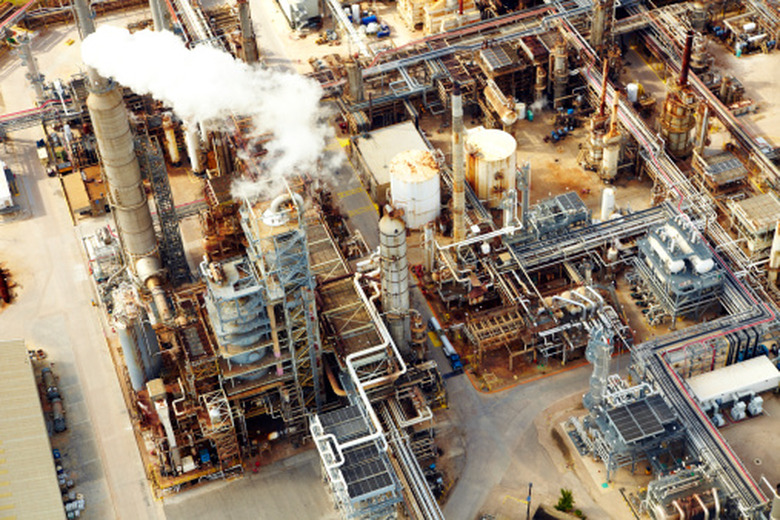Types And Effects Of Pollutants
Pollutants are chemicals or materials that pollute the air, the water or the soil in some form and are caused by human activities. Pollutants are the cause of many different kinds of crises that harm humans as well as wildlife and the environment. The three main types of pollution are the most conventional forms that are the best known; however, there are several other types that are pollution in a different sense of the word.
Air Pollution
Air Pollution
The major source of air pollution results from the burning of fossil fuels, which causes an excess of carbon monoxide in the atmosphere. Vehicles commonly cause this kind of pollution, as does the burning of coal. Fossil fuels being burned create a substance commonly referred to as smog, which is a dense layer of carbon-monoxide-based cloud matter. Air pollution is a contributing factor of asthma, lung cancer, chronic bronchitis, as well as many other lung-based ailments. The burning of a large amount of fossil fuels can also result in the mixture of sulfuric acid and nitrogen, which can combine to form acid rain.
Water Pollution
Water Pollution
Water pollution is primarily caused by watery run-off from agricultural sites, industrial sites and urban sites. Runoff consists of harmful, contaminated or unnatural chemicals or substances that interfere with a water source to infect and ultimately destroy the water therein. Agricultural runoff includes toxins found in pesticides and herbicides, urban runoff contains large amounts of organic waste and industrial runoff often contains high amounts of chemical toxins and residues. Any of these pollutants entering a water source can cause multiple health issues, the spreading of dangerous diseases and potentially premature death of humans and other animals.
Soil Pollution
Soil Pollution
Soil can become polluted as a result of improper disposal of chemical materials or toxins. This often occurs near large agricultural sites where excess herbicides or pesticides are used on crops. Sites that become polluted often become barren wastelands with toxic soil. These sites are often abandoned and cannot be used, resulting in a large stretch of land going to waste.
Other Pollutions
Other Pollutions
Another kind of pollution is known as light pollution. This is the result of urban or highly-populated areas requiring an excess of unnatural lights. This kind of pollution can cause problems in the migration patterns of birds as well as disrupting the cycles of nocturnal animals. It also makes the stars and other celestial phenomena hard to see.
Sound pollution is another type of lesser-known pollution caused by an excess of human-created sounds that are very loud and disruptive in nature. This type of pollution can impact the movement patterns of sea mammals as well as the nesting ability of some birds.
Cite This Article
MLA
Burry, Cameron. "Types And Effects Of Pollutants" sciencing.com, https://www.sciencing.com/types-effects-pollutants-8074472/. 22 November 2019.
APA
Burry, Cameron. (2019, November 22). Types And Effects Of Pollutants. sciencing.com. Retrieved from https://www.sciencing.com/types-effects-pollutants-8074472/
Chicago
Burry, Cameron. Types And Effects Of Pollutants last modified March 24, 2022. https://www.sciencing.com/types-effects-pollutants-8074472/
